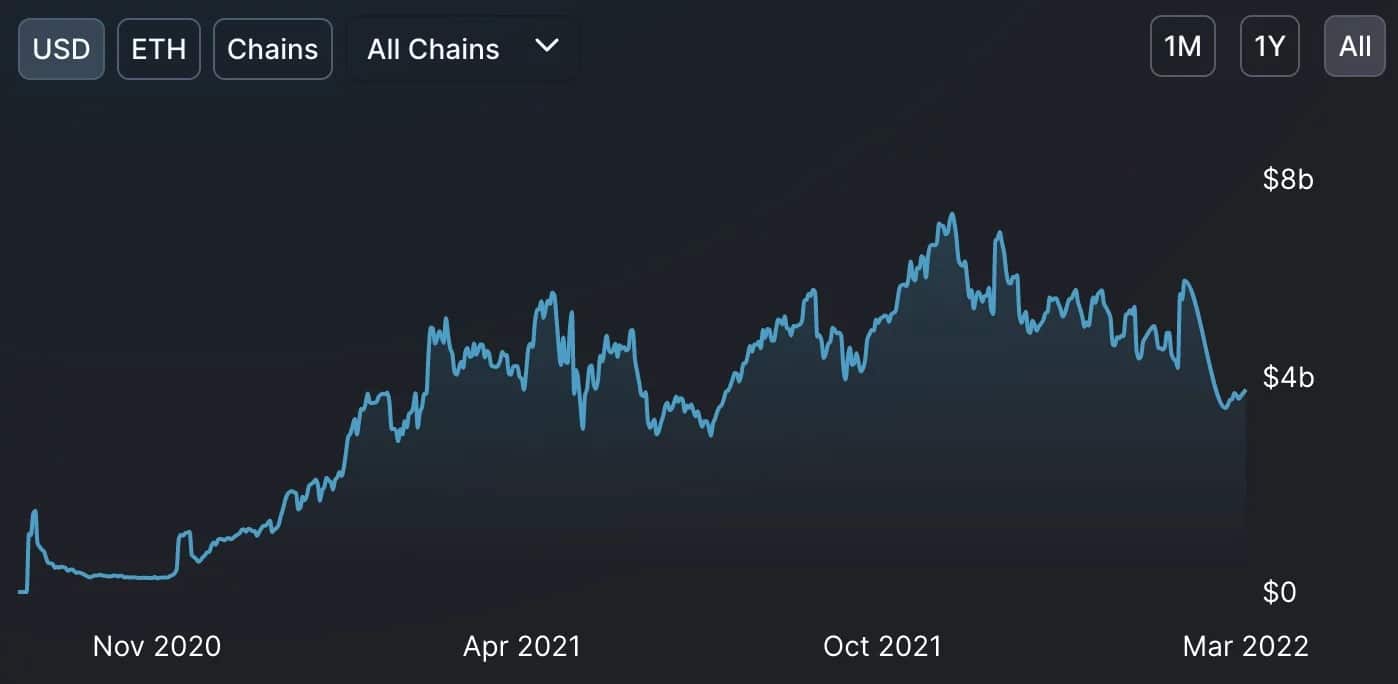Since its first announcement on July 20, 2021, Trident seems to be the next evolution of the decentralized finance (DeFi) world. The goal of this new protocol is to create a set of software components facilitating the implementation of liquidity pools with various features. Let’s take a closer look at what’s behind this technology.
Trident, a new start for Sushi
While it has been delayed throughout 2021 due to internal issues, Trident is finally available on the Polygon sidechain (MATIC). This protocol was created by some members of the Sushi team. Sushi is the 4th largest decentralised exchange with $3.63 billion in total value locked up on more than 16 blockchains.
So, for reasons of gas savings and to have a large population that will use this new feature, the organisation decided to deploy the first version on the Polygon blockchain.
This first test of Trident is just the beginning. Indeed, the protocol in its current state is no different from the simple token swap you can already find on the DEX with the sweet name of the traditional Japanese dish.
As audits are conducted for each of Trident’s features, it will evolve. The team wants to keep users safe at the expense of sloppy work that could lead to the loss of funds

Total value locked in dollars on DEX SushiSwap
But what is Trident?
Trident can be seen as a new stage in decentralised finance (DeFi). It is to automated market making 2.0 what Olympus Dao or Tokemak are to DeFi 2.0, i.e. a pioneer. It is through a framework called IPool that the Sushi team has developed a smart contract that aims to bring together several features.
Before going into detail, it is important to understand that a liquidity pool is a smart contract that cannot be modified once it is set up. For example, it is not possible for Uniswap to modify a smart contract on a pool already launched. Thanks to IPool, the latter can be modified. This will have the effect of unlocking or not unlocking specific features.
We know that 3 types of pools exist at present. The first is the one used by Uniswap v3.0, which allows users to concentrate their cash on a certain range or not. The second is specific to a single protocol, Balancer.
The purpose of the latter is to have access to so-called weighted pools. The creator of the pool is free to define the assets (up to 8 for non-stable tokens, otherwise 5) with percentages that can vary from 1 to 99%. Finally, the last one groups together pools of stablecoins or crypto-assets with the same value. This corresponds to what the Curve protocol offers.
The power of IPool lies in its ability to bring together these 3 types of pools through a smart contract, while being able to modify only the latter. Trident is therefore the name behind the first exploitation of this framework
The revival of Sushi
Indeed, while scandals have surrounded the SushiSwap protocol for several months, the delivery of this first product seems to reassure. That said, nothing is won yet and it will be necessary to be patient and to be sure that Triden is functional before claiming victory for the team. This new version leads to a reduction in costs thanks to the optimisation of the code and the use of the BentoNox (the protocol’s toolbox).
In parallel, Sushi is actively working on optimising transaction routes, as DEX aggregators 1Inch and ParaSwap already do. Note that a portion of the transaction fees (performed on any blockchain) will be allocated to holders of xSUSHI tokens, the SUSHI staking token.
